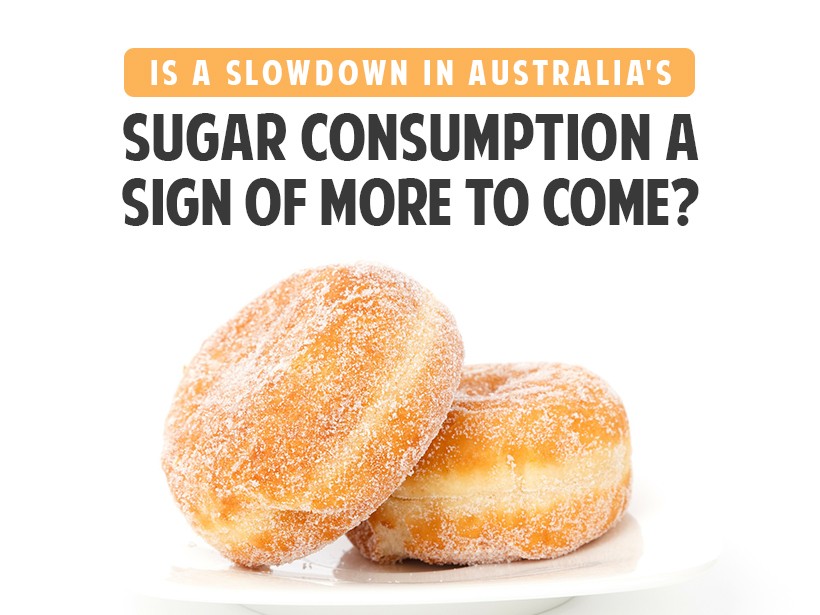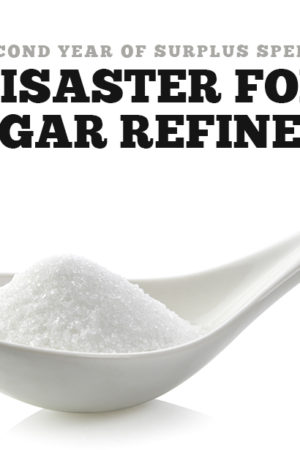Desperate though the fight may be against the profit of Big Sugar, progress is being made as populations and governments around the world begin to recognize the high price to be paid for maintaining unhealthy diets like the Standard American Diet (SAD–such an appropriate acronym). The rate of increase in the global consumption of sugar is slowing to a halt, as many of the countries with the highest rates of consumption begin to turn the tide on the decades-long rise in sugar use.
A turning point for Australian consumers
High on the list of countries slowing down on sugar intake is Australia, whose lawmakers are in the midst of a fight to alter the national dietary guidelines in favor of low-carb solutions to obesity and obesity-related diseases (Type 2 diabetes in particular). Outside of the political battle for smarter laws, Australians are already moving away from sugar as demand for the sweet powder slows drastically. “Health is a large factor behind this trend, offsetting the positive influence of stable domestic population growth,” says Charles Clack, an analyst at Rabobank in Sydney.1
The food and beverage industry, too, is responding to the shift. Nestle Australia, for example, is launching a new version of its popular chocolate drink Milo with zero cane sugar and 30 percent less added sugar overall. The general manager of Nestle Australia, Andrew McIver, said that the new product was developed as a direct result of consumer concerns about added sugar.2
The start of something big?
The trend isn’t universal, however, and many countries across Asia serve as marked exceptions to the global pushback on sugar. In China and India, for example, where the rate of increase continues to grow, the per capita rate remains lower than in heavy-consuming countries like Australia and the United States.
Whether or not such countries will continue to see high rates of consumption remains to be seen. Indeed, the contrast raises broader questions about whether it’s better information (and less biased scientific reporting) that has produced the global shift, or simply the sheer untenability of obesity rates in countries like the United States that has forced people to face the unpleasant reality of too much sugar in their diets. Whatever it may be, it’s a positive sign, and hopefully, it's one that forecasts similar advances in the years to come.
NUTRITIONAL DISCLAIMER
The content on this website should not be taken as medical advice and you should ALWAYS consult with your doctor before starting any diet or exercise program. We provide nutritional data for our recipes as a courtesy to our readers. We use Total Keto Diet app software to calculate the nutrition and we remove fiber and sugar alcohols, like erythritol, from the total carbohydrate count to get to the net carb count, as they do not affect your blood glucose levels. You should independently calculate nutritional information on your own and not rely on our data. The website or content herein is not intended to cure, prevent, diagnose or treat any disease. This website shall not be liable for adverse reactions or any other outcome resulting from the use of recipes or recommendations on the Website or actions you take as a result. Any action you take is strictly at your own risk.
- California Pushes for Cigarette-Like Warning Labels on Soda - July 1, 2019
- Is a Slowdown in Australia's Sugar Consumption a Sign of More to Come? - June 24, 2019
- Groundbreaking Study Says the Sugar Rush Doesn't Exist - June 12, 2019































